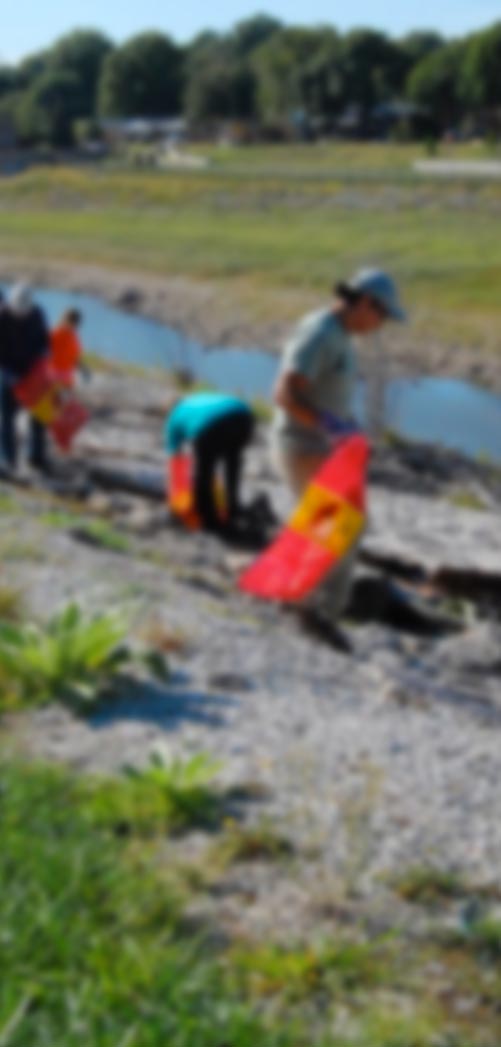Judging is underway for the River Story Award section in this year’s Cawthron Foundation 2018 New Zealand River Awards. The River Story Award is awarded to the individual or community with the most interesting and compelling story about working to improve the health of a river, or rivers generally.
Cawthron Foundation has identified eight stories where individuals, groups, businesses and communities are working together to make a positive difference to the health of our rivers and streams.
“People over the length and breadth of New Zealand are working hard to improve the quality of our waterways,” says event organiser, Elizabeth Bean.
“The health, and Mauri, of rivers is important to kiwis and all the projects that we heard about illustrate people working hard and doing positive things to help improve river quality. There were many inspiring stories and it was hard to choose eight finalist projects.”
The eight chosen finalist projects are currently being judged by leading New Zealand journalist and natural history author, Gerard Hutching. The stories are:
- Auckland: Advocates for great water and environmental outcomes have been active on Oakley Creek (also known as Te Auaunga), one of Auckland’s longest urban streams.
- Waikato: A partnership approach between Raukawa Marae and Fonterra, has led to a shared vision on how to nurture their local catchment and protect waterways.
- East Cape: Mere Tamanui has merged the ancient Māori principles of environmental guardianship with modern scientific methods in the Gisborne district, reconnecting whanau to their ancestral awa.
- Wellington: Citizen science was at the forefront of assessing river health last summer with a collaboration between NIWA, Greater Wellington Regional Council and locals, monitoring samples from the Hutt River.
- Marlborough: A collaborative process, using economic, environmental, cultural, and social values has brought together local stakeholders to solve a stormwater management problem.
- Canterbury: An art exhibition has engaged with the complex realities of water in the 21st century, as both a bringer of life and ancestral voice, but also as a contested commodity.
- Canterbury: Degradation from a century of agricultural activity, plus severe rain events, earthquakes and fire have not intimidated a community group in their efforts to clean up a local stream.
- Otago: Over the past ten years, locals have planted upwards of 35,000 trees in the Upper Clutha area and have received funding to expand their riparian planting programme with another 24,000 trees.
The River Story component of the New Zealand River Awards is sponsored by the Discover Waitomo Group, part of Tourism Holdings Ltd – for whom water quality management is a business priority.
Carl Fischer, Environmental Manager for Discover Waitomo, says, “our company is pleased to be associated with showcasing efforts that are representative of our desire to improve New Zealand waterways. The stories are all inspirational projects that involve community collaboration, science and innovative ways to address freshwater-related challenges.”
The winning River Story will be announced at the New Zealand River Awards dinner in Wellington on 13 November 2018. The River Awards recognise the most improved rivers from around the country, and the Supreme Award goes to the most improved river.
ENDS
About the New Zealand River Awards:
The annual New Zealand River Awards were established by the Morgan Foundation and the NZ Rivers Trust in 2013, and have since received valuable support from regional and local councils, and many other stakeholders in the freshwater space.
The Cawthron Foundation has received generous support from the Department of Conservation, Ministry for the Environment, Tourism Holdings Limited, and the Gawith-Deans Family Trust to run the 2018 Awards.
The New Zealand River Awards were established to draw attention to the state of our rivers, but more importantly, to recognise where communities, councils, farmers and industry were achieving significant improvement in water quality in one or more of their local rivers.
The long-term objectives of the Awards are to:
- Improve the health of New Zealand’s rivers and streams.
- Encourage greater community participation in measuring and reporting water quality.
- Highlight the actions being taken to restore river health.
The Awards celebrate improvement in water quality. All rivers, whether they are in poor health or in pristine condition can potentially win an award for being the most improved river in a region or nationally. The most improved rivers are determined by a judging panel of three scientists using statistical analysis of monitoring data from LAWA. Each year the Awards use one of four key water quality indicators: E.coli, nitrogen, phosphorus and the macroinvertebrate community index.
In addition to identifying the most improved rivers, there are two other important awards:
- The River Story Award for the most interesting and compelling story of an individual or community working to improve the health of a river, or rivers generally.
- The Reo mō te Awa Award (River Voice) Award is for an individual who has the raised the profile of rivers through compelling public commentary.
The 2018 New Zealand River Awards will be announced on 13 November at a ceremony in Wellington.
About Cawthron Foundation:
Cawthron Foundation is a charitable trust that raises donations, bequests and endowments for public-good science. The Foundation also funds scholarships to support talented emerging scientists and delivers community education programmes.
Cawthron Institute is New Zealand's largest independent science organisation, offering a spectrum of services to help protect the environment and support sustainable development of primary industries. It is a diverse organisation employing 220 scientists, laboratory technicians, researchers and specialist staff from more than 28 countries.
Cawthron’s scientists have expertise in aquaculture, marine and freshwater resource management, food safety and quality, algal technologies, biosecurity and analytical testing. Its ground-breaking science is supported by substantial testing and research laboratories, state-of-the-art technology and a purpose-built aquaculture park.
